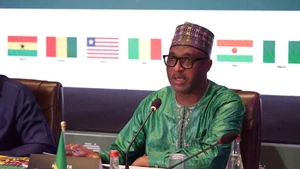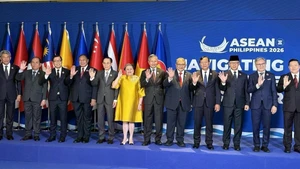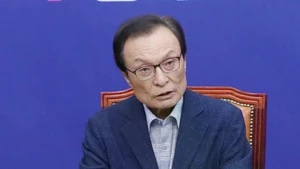In a recent meeting with Argentine President Javier Milei in Washington, IMF Managing Director Kristalina Georgieva praised Argentina’s great progress in 2024. The IMF chief stressed that the meeting went very well in the context of Argentina’s great progress in reducing inflation, stabilising the economy and returning to growth, and also noted that poverty in the country is also gradually decreasing.
After the meeting, Georgieva said an IMF delegation will travel to Buenos Aires this week to negotiate a new credit agreement to support Argentina’s more dynamic and prosperous development. Argentina, the third-largest economy in Latin America, is negotiating a loan worth 44 billion USD with the IMF. Georgieva said the IMF would quickly set up a new credit programme to give Argentina a boost, and the timing was right because the economy is growing faster than expected and, more importantly, the people support reforms, which are the most important factors for success.
Argentina is a member of the Group of 20 leading developed and emerging economies (G20) and a major grain exporter. Its debt history dates back to the late 1990s when the South American country defaulted on its debt after borrowing money to modernise the capital Buenos Aires.
Argentina was once the country with the largest debt to the IMF. In 2018, under President Mauricio Macri, the IMF lent Argentina 45 billion USD. The IMF has always set specific and strict financial and economic conditions to maintain a debt restructuring agreement with Argentina and will review the debt repayment every three months. It is estimated that in 2024, Argentina owes the IMF more than $32 billion, equivalent to 5.3% of its Gross Domestic Product (GDP).
The Argentine government has made efforts to implement a policy of cutting the budget deficit in 2024 by radically cutting state subsidies for essential services such as electricity, water, telecommunications, public transport, gas, gasoline, health and education, as well as restructuring the public administration by cutting 34,000 workers. Therefore, Argentina’s “belt-tightening” efforts are worth it.
Argentine Economy Minister Luis Caputo said that in 2024, for the first time in 14 years, Argentina will achieve a fiscal surplus equivalent to 1.8% of GDP. On his social media account, Caputo affirmed that the budget savings policy and screening of public sector workers will continue to be implemented in 2025. They assessed the 2024 financial results as a historic milestone for Latin America’s third-largest economy.
Caputo emphasised that the programme of prioritising public spending cuts has surprised the world, and affirmed that the fiscal “austerity” policy is the core tool to restore macroeconomic stability and social peace. The Argentine Minister of Economy commented that by eliminating the budget deficit, Argentina will no longer have to pursue money issuance and thanks to that, inflation will be controlled. For decades, the “ghost” of inflation has always haunted Argentina.
After efforts to adjust fiscal policy in the first year of office, President Javier Milei’s government has initially controlled the situation of hyperinflation, although it is still at a high level in the world. Economy Minister Luis Caputo announced that Argentina's inflation in 2024 will be the lowest since 2018.
It is expected that Argentina’s inflation will fall to 25% and economic growth will reach 5% in 2025. The Argentine government also emphasised that thanks to the efforts of the people, the country has stabilised and begun to restore the necessary conditions to embark on the path to prosperity.
In the context of the improved “health” of the economy, the Argentine government has set a goal of rebuilding the country in 2025. Accordingly, the government continues to promote investment attraction and facilitate import activities. Allowing the parallel circulation of the domestic peso and the USD starting next February will create healthy competition between currencies. In addition, Argentina will abolish many regulations that hinder development and move towards economic freedom.















